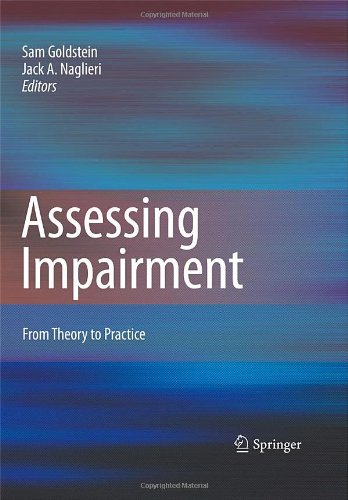

Most ebook files are in PDF format, so you can easily read them using various software such as Foxit Reader or directly on the Google Chrome browser.
Some ebook files are released by publishers in other formats such as .awz, .mobi, .epub, .fb2, etc. You may need to install specific software to read these formats on mobile/PC, such as Calibre.
Please read the tutorial at this link: https://ebookbell.com/faq
We offer FREE conversion to the popular formats you request; however, this may take some time. Therefore, right after payment, please email us, and we will try to provide the service as quickly as possible.
For some exceptional file formats or broken links (if any), please refrain from opening any disputes. Instead, email us first, and we will try to assist within a maximum of 6 hours.
EbookBell Team

4.0
76 reviewsImpairment and disability are widely used terms, yet considerable disagreement exists as to their relationship—especially when impairment means different things to different professionals in the fields of mental health, medicine, and education. Although diagnostic criteria for various disorders are clearly detailed in the DSM-IV and elsewhere, criteria for impairment remain elusive. And patients with severe limitations but minimal symptoms, or the reverse, further complicate the discussion.
The first in-depth treatment of the theory, definition, and evaluation of this core concept, Assessing Impairment: From Theory to Practice cuts through the confusion and cross-talk. Leading scholars and clinicians offer a robust evidence base for a much-needed reconceptualization of impairment within the context of diagnosis and disability, arguing for a wide-ranging quality-of-life perspective. This contextual approach to assessment goes beyond mere symptom counting, resulting in more accurate diagnosis, targeted interventions, and improved patient functioning.
Within this concise but comprehensive volume, coverage focuses on key areas including:
The interdisciplinary model proposed in Assessing Impairment gives clinicians vital tools for working with the unique limitations and strengths of every patient. Child, school, and educational psychologists will find it particularly useful, given the critical importance of early detection and the complexity of young people’s lives.